To protest the imprisonment of their colleagues, filmmakers from Turkey carry a poster. “A Film That Was Never Made” is written on it. It refers to the documentary on 2013’s Gezi Resistance, Çiğdem Mater, one of the imprisoned filmmakers, thought of making. “You heard that right, there’s no actual film,” says Çiğdem in her letter to IDFA goers. She was accused with “the thought” of making a film and sentenced to 18 years in prison. The video called “A Film That Was Never Made“ focuses on the actions at Amsterdam Documentary Film Festival (IDFA) 2022, held by Çiğdem’s filmmaker friends. It tells the story behind the poster… The story of the criminalization of filmmaking in Turkey.
Two filmmakers, Çiğdem Mater and Mine Özerden, have been held in Bakırköy Prison in Istanbul, Turkey, for more than a year. They were sentenced to 18 years in prison within the context of the Gezi Case; a case based on the criminalization of the Gezi Resistance, the peaceful struggle against the demolition of the Gezi Park in Istanbul in 2013.
The case started in 2019 and the decisions were taken in April 25, 2022. But in fact, the judicial process goes back to 2017, the year that Osman Kavala, the founder and chairman of the board of directors of Anadolu Kültür, a non-governmental organization, was arrested (Kavala has been in prison since then). It even goes back to 2015, when a case was opened against the Taksim Solidarity, an initiative that was active in the struggle for the preservation of Gezi Park and Taksim Square. Although these earlier cases resulted in acquittals, the efforts of those who hold political power in Turkey to criminalize the Gezi Resistance, a peaceful people’s struggle, by instrumentalizing the law did not cease. Kavala was arrested again, new case files were created, case files were combined and then separated again: A long spiral of Kafkaesque lawlessness… Osman Kavala was sentenced to life imprisonment in the case that was ultimately concluded in 2022. Extremely valuable people who worked in different fields such as architecture, urban planning, workers’ rights, human rights and the struggle for justice, Mücella Yapıcı, Can Atalay, Tayfun Kahraman, Hakan Altınay and Yiğit Ekmekçi were sentenced to 18 years in prison; together with Çiğdem Mater and Mine Özerden, who are, apart from being civil society activists, also known as filmmakers.
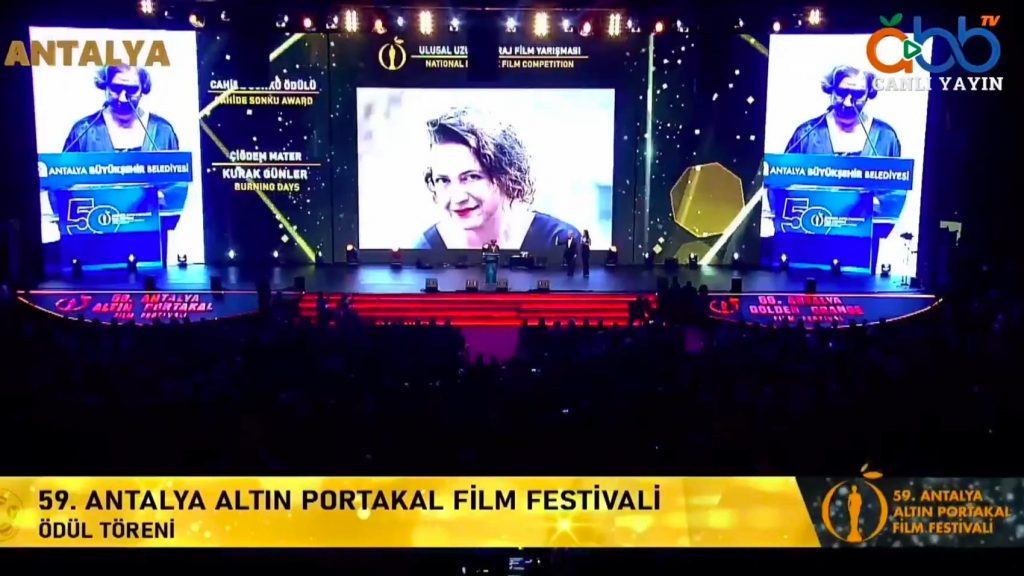
These decisions do not only criminalize fundamental rights such as the ‘right to assemble and march’, the ‘right to speak’ and the ‘right to the city’, but also targets ‘freedom of filmmaking’ though the accusations against Çiğdem Mater and Mine Özerden. Even the documentary on the Gezi Resistance that Mater thought of making, which gave its name to this video, was included in the case file as a crime. Even the meetings she held or planned to hold at the Sarajevo and Yerevan film festivals for this unrealized documentary, these most casual filmmaking activities, were deemed a crime.
Our friends have been in prison since this decision was taken on April 25, 2022. Since then, the Justice Watch is being held for the Gezi detainees. Filmmakers in Turkey did not remain silent in the face of this injustice experienced by their colleagues, and many protests were carried out demanding their release, especially at film festivals.
This video focuses on one of those actions. At the 35th Amsterdam Documentary Film Festival (IDFA) that took place in November 2022, Çiğdem Mater and Mine Özerden’s filmmaker friends opened posters with the words “A film that was never made” and screened two short films produced by Mater, directed by Adrian Figueroa during IDFA. The video also includes scenes from the actions held at the 59th Golden Orange Film Festival, and the letter Çiğdem Mater wrote to the IDFA participants.
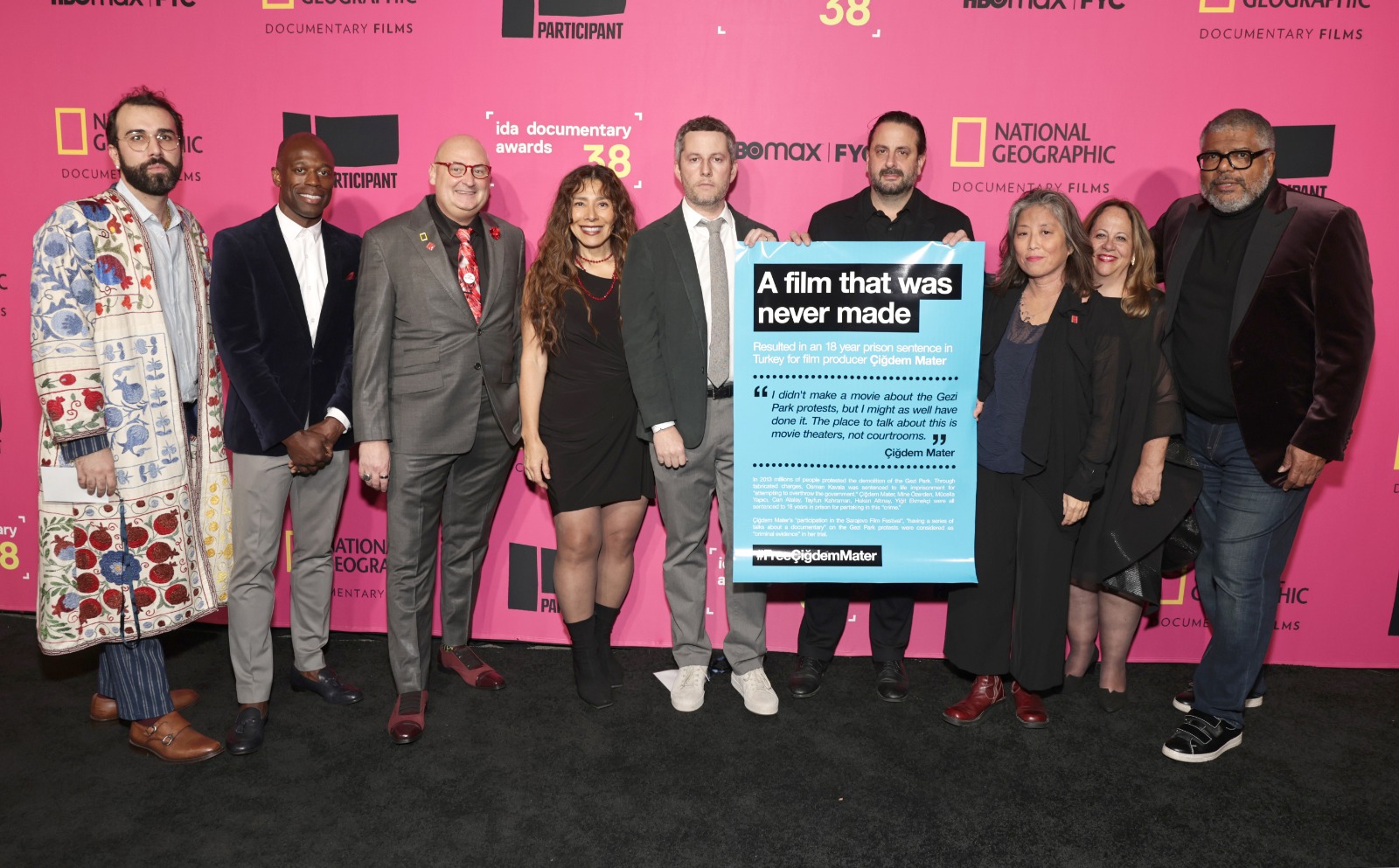
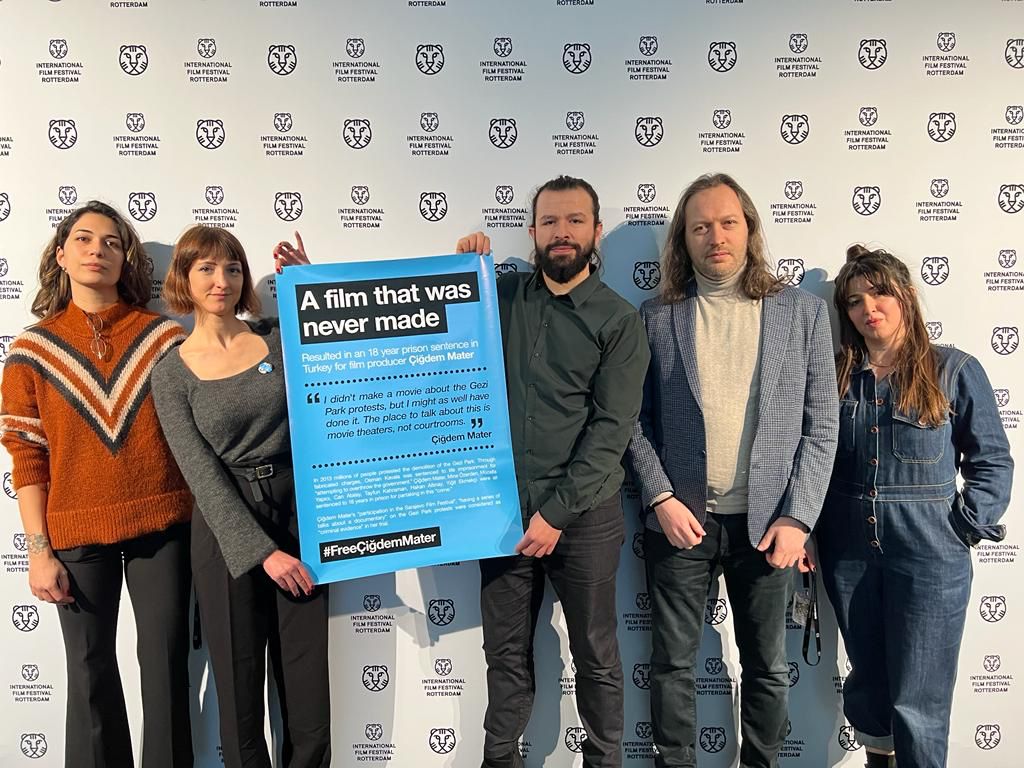
About the Gezi Resistance and The Trials
In 2013, the reactions to the project that would demolish Gezi Park, on Taksim Square – which is also the earthquake gathering area – intensified. A military barracks (The Taksim Military Barracks, 1806) to be used as a shopping mall was planned to be “rebuilt” in place of the park. Towards the end of May 2013, with the increase in police violence against the activists involved in the city movements protesting the project in question, the protests turned out to be a massive resistance in which different segments of the society participated and collaborated. The protests turned into a popular uprising attended by millions, known as the Gezi Resistance or the June Resistance. The Military Barracks project was not implemented after the protests in which 8 people lost their lives as a result of police violence -there were also losses related to the use of pepper gas, and many people lost their eyes due to the gas canisters.
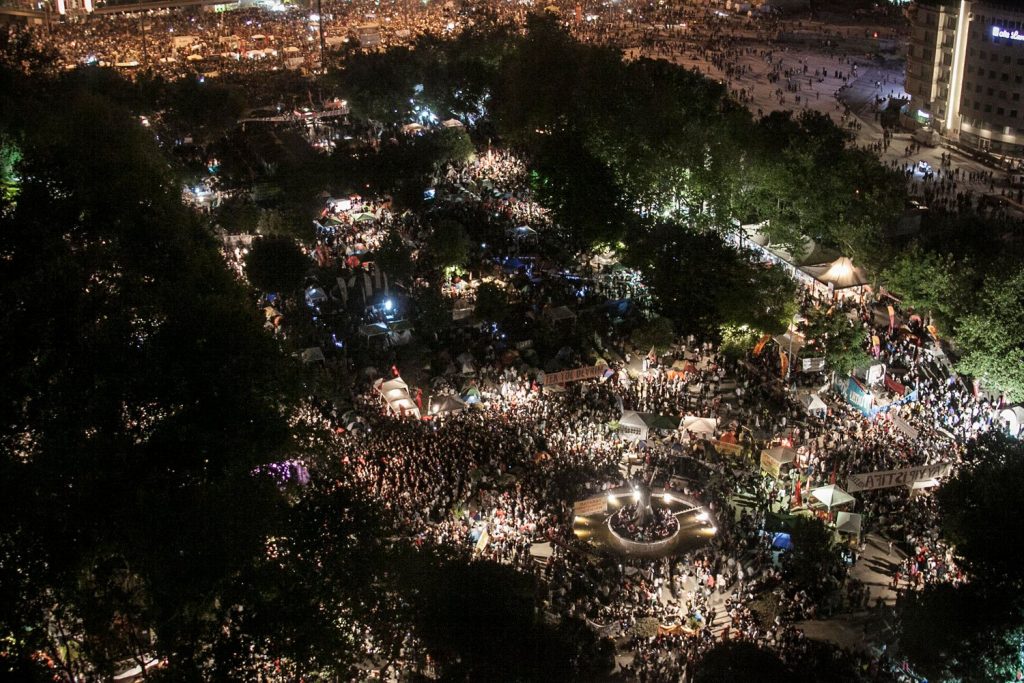
However, the government of the time, which maintained its political power until today followed a policy of criminalizing these peaceful protests based on “right to the city”. The Gezi Trial singled out 16 people from the Gezi Resistance, in which millions of people participated, and framed the resistance, which had the characteristics of a democratic people’s movement, as an “attempt to overthrow the government of the Republic of Turkey”. Among these 16 people, there were people working in the field of cinema and theater, such as Çiğdem Mater, Mine Özerden, Mehmet Ali Alabora, Pınar Öğün whose filmmaking and theater activities were criminalized in the following trials.
Osman Kavala, who was arrested in 2017, made significant contributions to documentary cinema in Turkey with his projects including the New Film Fund. Mücella Yapıcı, Can Atalay and Tayfun Kahraman were active in the struggle against the destruction of the Emek Theater. Rights defender Yiğit Aksakoğlu, who appears in the video, was arrested with Kavala in 2017 and was released in 2019 after being tried. His legal process continues.
These decisions taken in 2022 were upheld in the appellate court. The appeal, which did not accept the objections of the defendants and found the prison sentences given appropriate, did not even feel the need to discuss the decisions of the Council of Europe and the European Court of Human Rights that there was a “violation of rights” in the case. Now, there’s only one more court of appeal left for the Gezi defendants and that is the Supreme Court.
About Çiğdem Mater and Mine Özerden
Çiğdem Mater has produced many feature-length fictions including Çoğunluk (Majority, 2010), Sivas (2014), Toz Bezi (2015), Kurak Günler (Burning Days, 2022). She also produced two short films, Letters from Silivri (2020) and Dear Osman (2022), directed by Adrian Figueroa dedicated to Osman Kavala, whom she worked with at Anadolu Kültür.
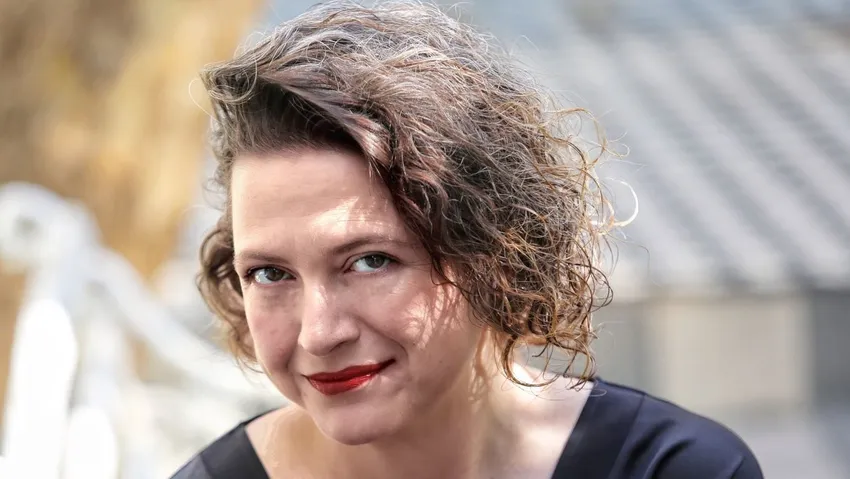
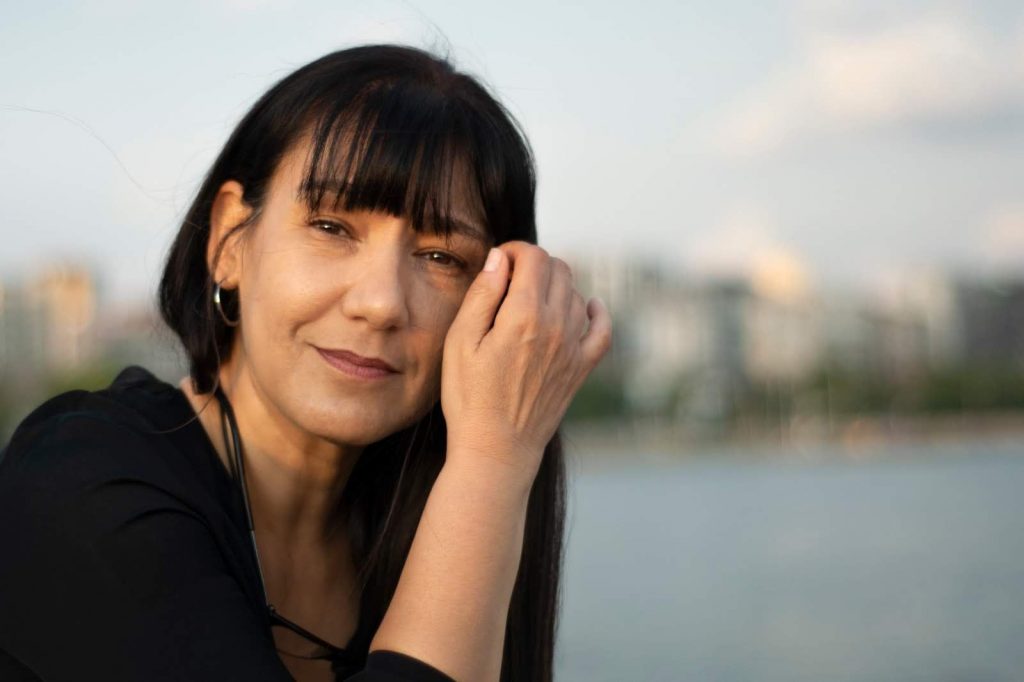
Having graduated from Mimar Sinan University Cinema-TV department, Mine Özerden worked as an assistant director in feature films in the 90s, produced documentaries and short films. In the 2000s, she organized cinema workshops under the umbrella of Anadolu Kültür, carried out many works in the field of civil society, and contributed to urban movements as a member of the Taksim Platform.





